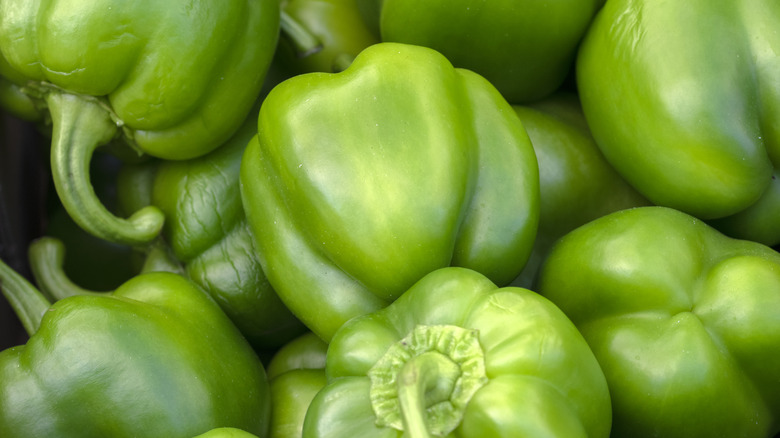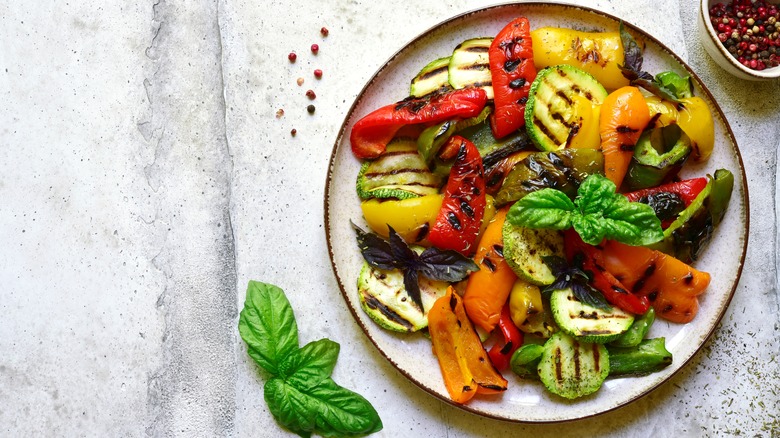The Cheap Reason You Never See Green Peppers In Multi-Packs
Green peppers are a kitchen staple snack and a secret ingredient in many favorite recipes. However, did you know there's a reason you won't find them in a bell pepper multi-pack? Consider this: When shopping, you usually come across packs containing red, yellow, and orange peppers. This is a strategy pepper producers use to save money. Since green peppers are much cheaper, suppliers choose not to invest in packaging them.
Would you feel shortchanged when purchasing a pricier pack of three peppers with sweet red bell peppers perfect for roasting, only to find a green one thrown in? This happened when Melissa's Produce added green peppers to multi-pepper packages. Customer backlash quickly resulted in the green peppers removal.
Furthermore, recipes often call for green peppers to be cooked. However, for raw peppers, the preference usually leans towards sweeter peppers like reds or yellows. Why is the green pepper given the short end of the stick? Green peppers are just unripe bell peppers, making them slightly more bitter. However, Healthline states they are rich in nutrients and vitamins like Vitamin C, B6, and many others.
Bell peppers are for more than just roasting
If you find yourself with an abundance of green peppers this season and seek creative alternatives to the usual stuffed and roasted pepper dishes, you've come to the right place. The bell pepper is a remarkably versatile ingredient. For example, consider pickling them to add a unique twist to your cocktails. Yes, you read that correctly. The advantage of pickling peppers lies in their preservation, allowing you to use them over an extended period.
These pickled delights serve as excellent garnishes for beverages such as Bloody Marys, and for a more adventurous option, you might attempt the intriguing Dirty Pickled Pepperoncini Martini (we challenge you to say that three times fast). Freezing is another viable option. Freezing your surplus peppers provides you with an additional six months to determine their fate.
Furthermore, you can dry leftover peppers. Dried peppers can be transformed into spices like paprika or red pepper flakes. Last but not least, you can simply aim to consume them before their expiration. With this technique, don't store your bell peppers in the fridge. This can cause them to lose their crunch. Always remember, Peter Piper didn't merely pick a peck of pickled peppers; He ate them, too.

